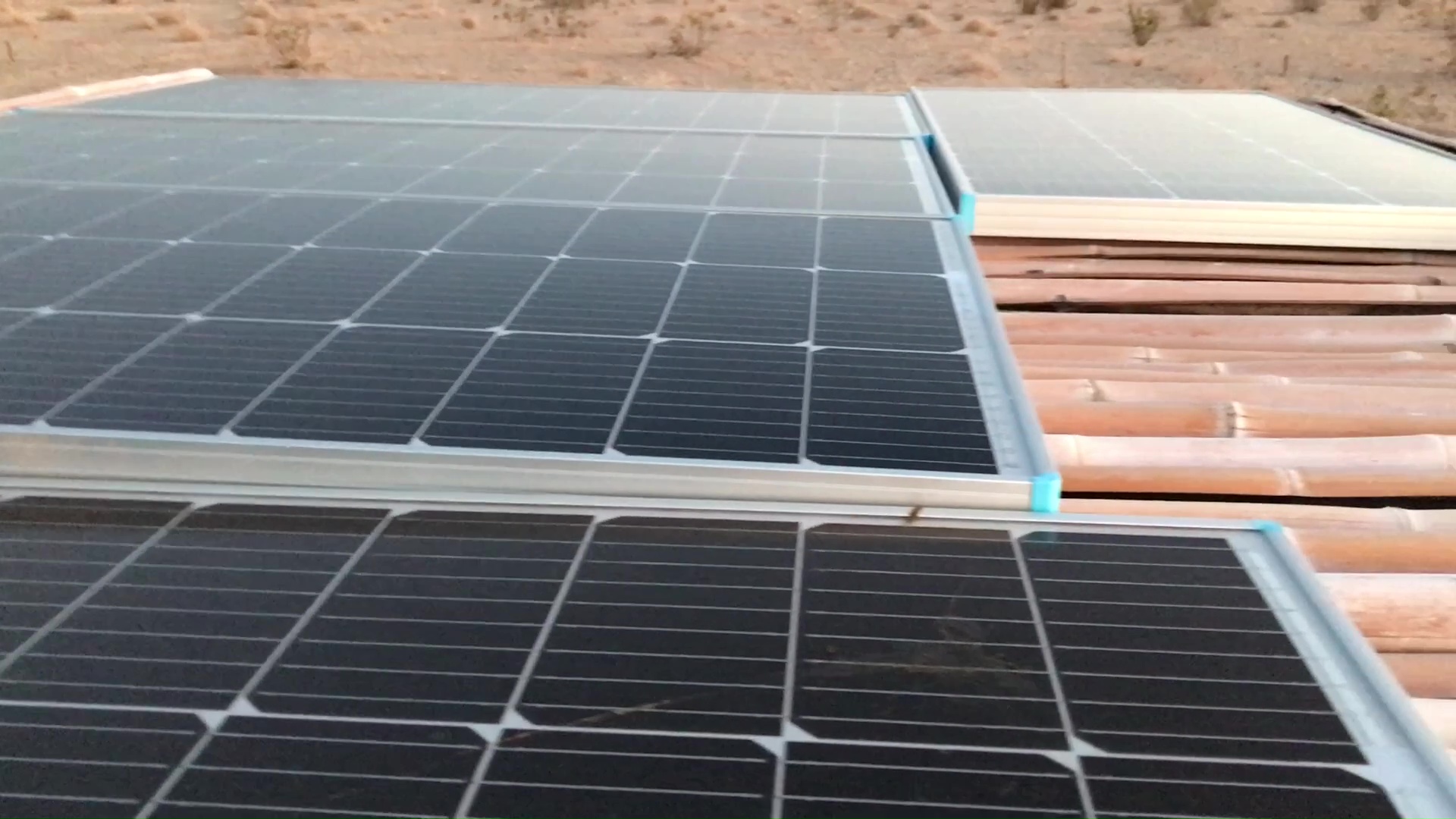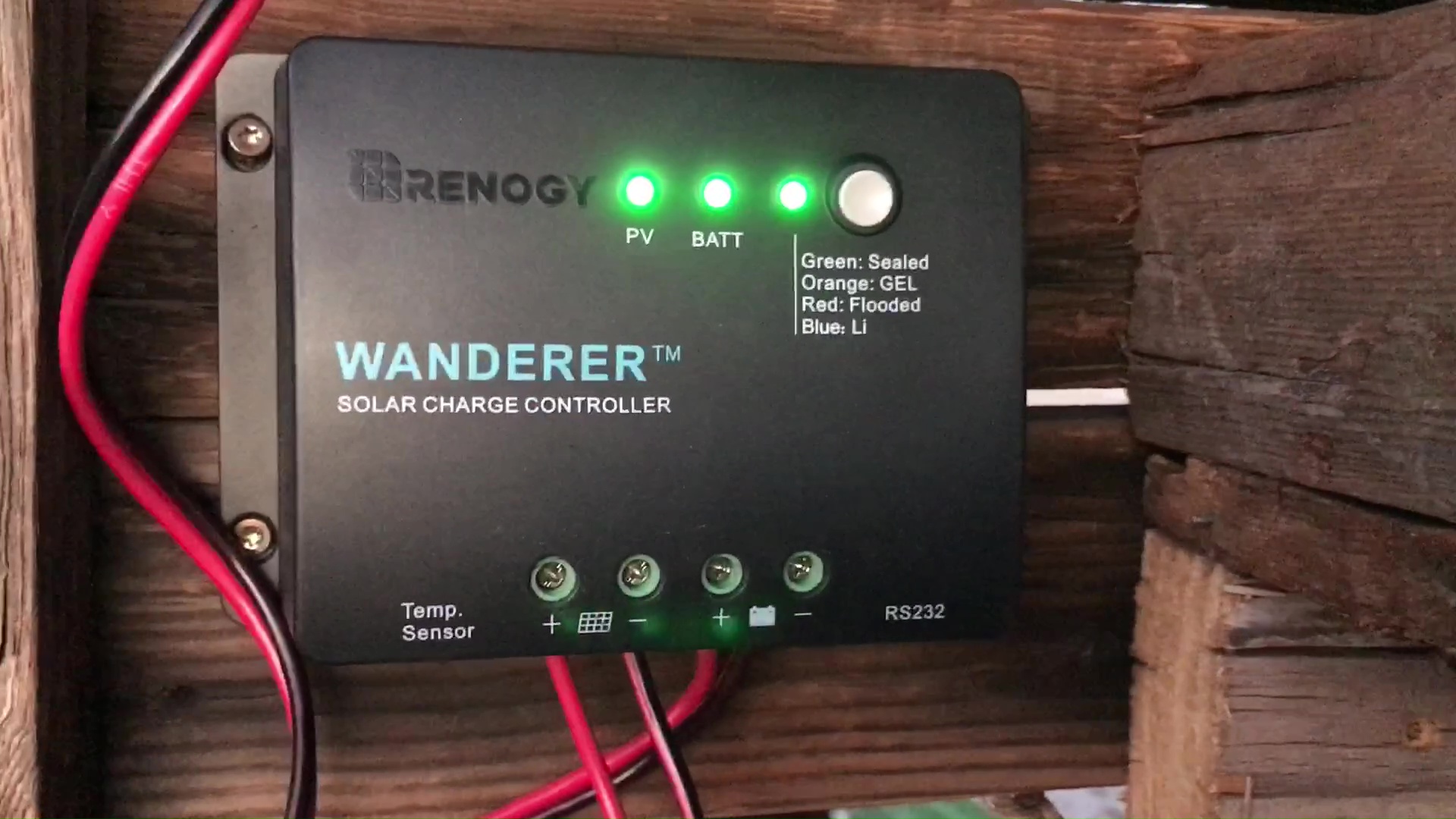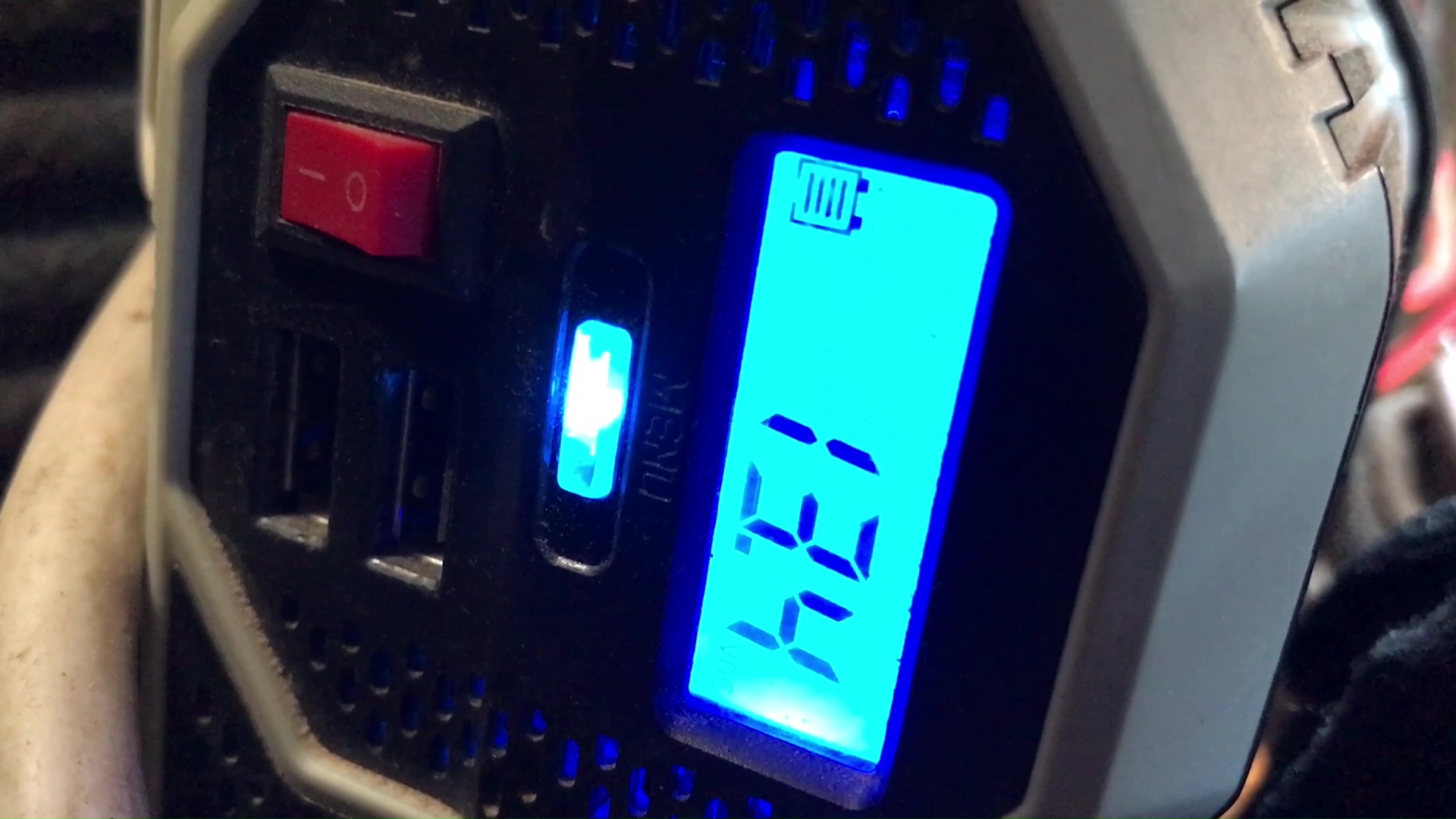
01 Solar Panel Array On Bamboo Pole Fence Roof

02 Solar Panel Battery Charge Controller Unit

03 Power Inverter Displaying Voltage Of Solar Panel Charged Battery Bank
Upgraded Solar Panel Array Charge Controller Inverter And Wiring For Off Grid Off Road Office Power
My solar panel power system has been through a lot over the years. It's really proven out the idea that you can continually scale up and extend the system over time. Ideally you'd replace batteries a the same time, only have battery banks of the exact same batteries that were manufactured at the same time, there are many factors involved in optimizing the system. I've found that while I may have sacrificed perfection, what I've settled with has worked well enough for me over the years. I went from a single panel, battery, charge controller and inverter in the beginning many years ago to a couple batteries and a couple panels, then 3 batteries and 3 panels. As of this most recent upgrade, I've decided to hold off on more batteries and focus on adding more wattage with more panels and an upgraded charge controller. I've found that I don't need that many batteries to run my tiny home 12 volt systems during the day, and that the rate of battery power depletion at night is so fast that it's almost not even worth trying to sustain power after dark. This fits with my more natural and holistic lifestyle of re-synchronizing with circadian rhythms.
Less batteries and more panels results in not lacking power for office work and tool use during the day, but being forced to shake the habit of being a work-a-holic and shut down devices at dusk. It's really a beneficial pattern to be forced to relax and rest when the sun goes down. The toxic legacy of batteries seems to be more of a concern than the panels, though nothing in the system is really eco-friendly or biodegradable. Everything is a trade off, for now I added 4 panels and that really solved a lot of issues.
For the last 3 years, the 2-3 panels and batteries I've had for most of the time would not produce much power on a cloudy day, in the winter I couldn't get a full day of power even in the sun, and the batteries just don't seem to hold up for long with enough power to keep the inverter from shutting off. I'm not going to complain, it was just demoralizing to always be in the middle of something epic and have the inverter start acting up, then shut off so you've got to scramble to compensate for the power loss just to wrap up a project. Or the worst was having everything running fine in the office, then one cloud blocks the sun for even just a few seconds and there goes the power. A lot of that has to do with the age of everything, but I decided the best way to bridge all the gaps was to add those 4 panels. Since then all of those issues have resolved. I now have to proactively shut down early to catch the sunset for a bit of a wine sipping end of the day ceremony.
I've also upgraded the wiring which I've discovered takes a lot of maintenance. I've been working diligently with a multimeter and that's helped me optimize the wiring significantly. I've also been more economical in the wiring distances, thickness gauge, splicing, coupling, terminal connections, etc. You think everything is well connected, but after years of being on the road, and years of being in climate extremes and in the elements, you find connection points that need routine care and maintenance. Small scale 12 volt systems are safer to work with than higher voltage systems, though you can never be to cautious. Plenty of in-line fuses are good to keep on hand as well as appropriately matched charge controllers to prevent batteries from over charging. Ventilation is very important as well. Without going into too much detail on safety tips, I'll say few solar power hobbyists have electrical engineering degrees so it's best to read manuals, over build, take all the advice you can get from professionals. I've had great auto electricians do very technical installations for me, they've showed and taught me a lot but I'll always look up to the pros.